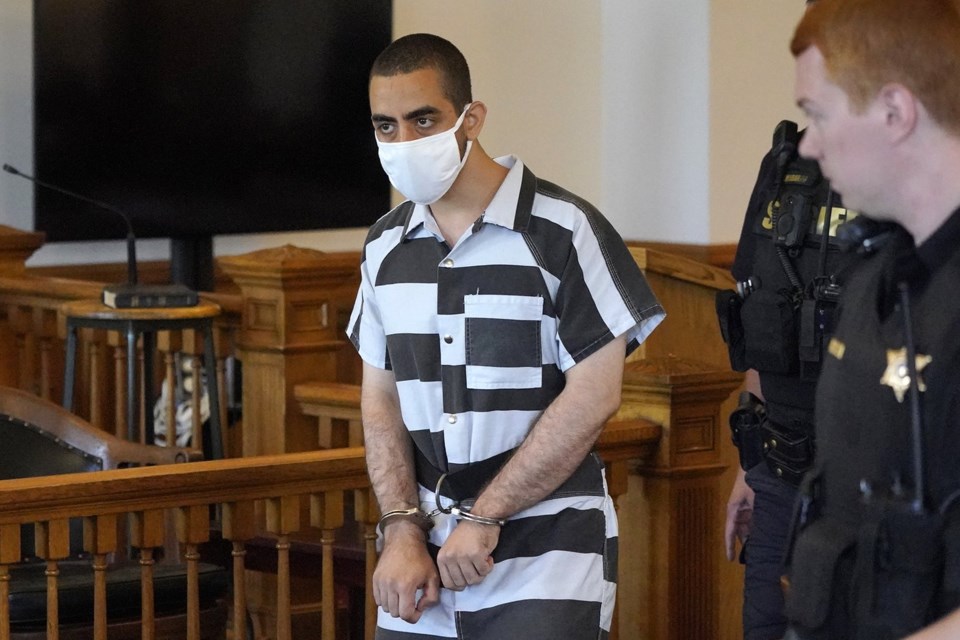The man charged with stabbing author Salman Rushdie rejected a plea deal Tuesday that would have shortened his state prison term but exposed him to a federal terrorism-related charge, the suspect's lawyer said.
Hadi Matar, 26, has been held without bail since the 2022 attack, in which he is accused of stabbing Rushdie more than a dozen times and blinding him in one eye as the acclaimed writer was onstage, about to give a lecture at the Chautauqua Institution in western New York.
Matar’s attorney, Nathaniel Barone, confirmed that Matar, who lived in Fairview, New Jersey, rejected the agreement Tuesday in Mayville, New York.
The agreement would have had Matar plead guilty in Chautauqua County to attempted murder in exchange for a maximum state prison sentence of 20 years, down from 25 years. It would have also required him to plead guilty to a federal charge of attempting to provide material support to a designated terrorist organization, which could result in an additional 20 years, attorneys said.
Rushdie, who detailed the attack and his recovery in a memoir, had spent years in hiding after the Ayatollah Khomeini issued a fatwa, or edict, in 1989 calling for his death over Rushdie's novel “The Satanic Verses,” which some Muslims consider blasphemous. The author reemerged into the public the late 1990s and has traveled freely over the past two decades.
Matar was born in the U.S. but holds dual citizenship in Lebanon, where his parents were born. His mother has said that her son had become withdrawn and moody after visiting his father in Lebanon in 2018.
Rushdie wrote in his memoir that he saw a man running toward him in the amphitheater, where he was about to speak about the importance of keeping writers safe from harm. The author is on the witness list for Matar's upcoming trial.
Representatives for Rushdie did not immediately respond to an emailed request for comment.
Anthony Izaguirre, The Associated Press




